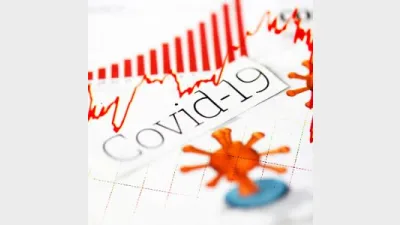COVID-19 causes modern slavery difficulties



The advent of COVID-19 has made it harder for firms to examine a company’s supply chain from a modern slavery perspective.
The Modern Slavery Act was introduced in 2018 and requires firms to report on the risks of modern slavery in their operations and supply chains and what actions they are taking to rectify those risks.
In a Bloomberg webinar on environmental, social and governance (ESG) issues, Danielle Welsh-Rose, ESG investment director at Aberdeen Standard Investments, said that this had become harder to quantify when it was not possible to visit the companies in person.
“One problem we have at the moment is that we cannot do site visits because of COVID-19 and neither can our auditors so it is very difficult to know how we can examine our supply chains. Does that mean we should be trying to find an alternative method?”
Mans Carlsson-Sweeny, head of ESG research at Ausbil, added: “There are 40 million people in slavery and COVID-19 has made even more people vulnerable to exploitation. It is hard for companies to get to the bottom of and I think they underestimate the scale of it”.
He said the business community had been “supportive” of the act’s introduction but they needed to ensure it was taken seriously.
“Just assessing it doesn’t mean you are moving the dial, it’s about the actions that are being taken. Some companies see it just as a compliance exercise and others take it seriously and understand their supply chains.
“You have to look into what are the risks, what is being done and how you measure the steps that are taken to see if they are effective?”
Welsh-Rose added that, as a global company, it could be “overwhelming” to comply with the Modern Slavery legislations in different jurisdictions as it was an “incredibly complex” topic.
Australia’s legislation was preceded by 2015 legislation in the UK and the panellists expected there would be more to come in the future.
Carlsson-Sweeny said: “The UK was first and Australia copied them and now the UK is looking at us again so it is a race to the top between the two. This is just the start and there is much more legislation to come”.
Recommended for you
Ausbil is growing its active ETF range with an ESG product in collaboration with sister company Candriam.
Philanthropic investment group Future Generation’s CEO, Caroline Gurney, will step down from her role at the start of next year.
The newly combined L1 Group is expectant of stabilising Platinum’s falling funds under management within the next 18 months, unveiling four growth pathways and a $330 million equity raise.
Janus Henderson Investors has launched a global small-cap fund for Australian investors, which includes a 5.4 per cent weighting to Australian equities.












